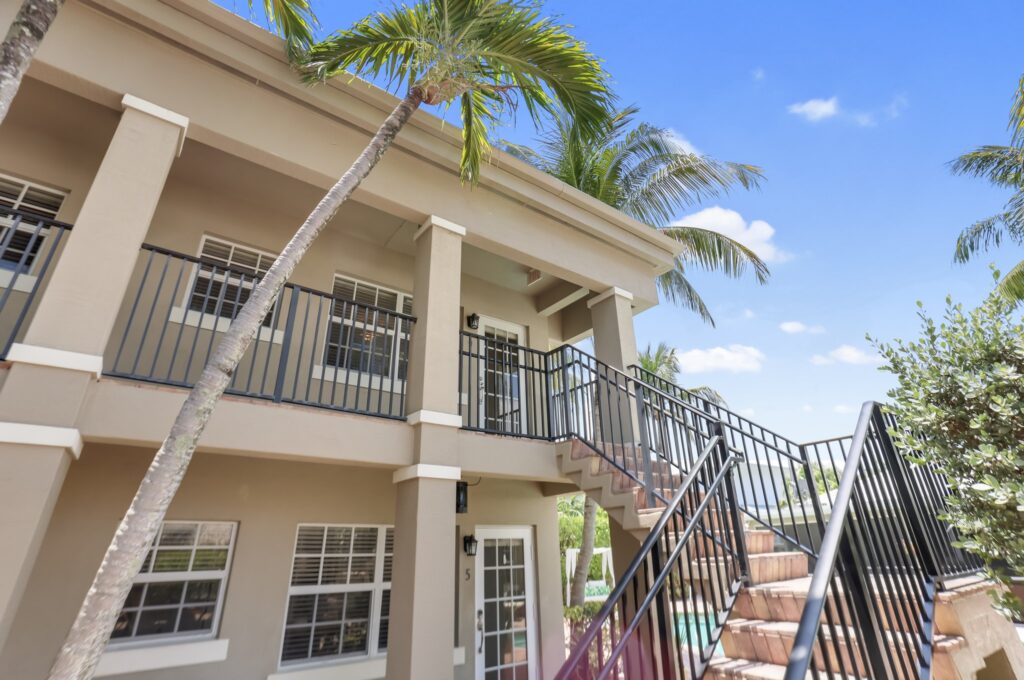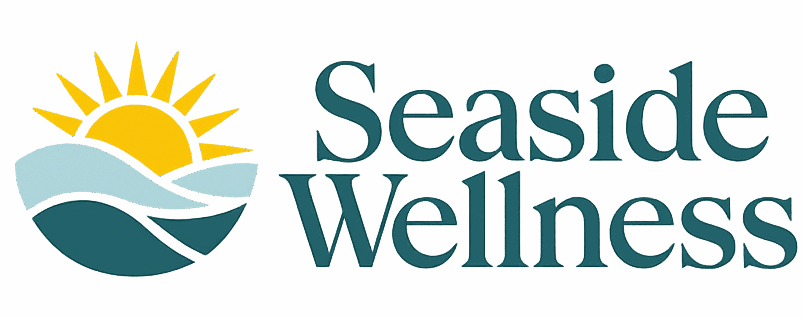Dual Diagnosis Treatment in West Palm Beach, Florida
At Seaside Wellness, we specialize in treating co-occurring mental health and substance use disorders through an integrated, evidence-based approach. Our dual diagnosis programs address the connection between emotional health and addiction, helping clients achieve lasting recovery and renewed stability in every area of life.
Find balance and lasting recovery with Seaside’s expert dual diagnosis treatment in West Palm Beach. Comprehensive care for mental health and addiction.


Understanding the Connection Between Mental Health and Addiction
What Is Dual Diagnosis?
Dual diagnosis, also known as co-occurring disorders, refers to when an individual experiences both a mental health condition and a substance use disorder at the same time. These conditions often influence and intensify one another. For example, someone may use alcohol or drugs to manage symptoms of depression, anxiety, or trauma, which can in turn worsen mental instability and dependence. Common examples of dual diagnosis include:
- Depression and alcohol use disorder
- Anxiety and stimulant addiction
- Bipolar disorder and opioid dependence
- PTSD and substance abuse
Without integrated treatment, individuals may find themselves stuck in a cycle where mental health symptoms fuel addiction and substance use worsens emotional distress. Treating one condition without the other often leads to relapse or incomplete recovery. According to the National Institute on Drug Abuse (NIDA), nearly half of individuals with substance use disorders also experience a mental health condition, underscoring the importance of comprehensive dual diagnosis care.
At Seaside Wellness, our integrated model helps clients uncover the root causes of their struggles, manage symptoms effectively, and build a foundation for long-term emotional balance and sobriety.
Recognizing When It’s Time for Integrated Treatment
The Importance of Dual Diagnosis Treatment, and Who It Can Help
It’s not always easy to recognize when mental health struggles and substance use have become connected, but understanding the signs can help you seek the right kind of support. You may benefit from a dual diagnosis program if:
Why It’s Critical to Break the Cycle
A dual diagnosis program does more than address addiction, it treats the underlying mental and emotional patterns that sustain it. By combining medical care and support, clients at Seaside Wellness learn to rebuild stability, confidence, and self-awareness. Here are the five main benefits of an integrated approach:
Treats the Root Cause
Addiction often stems from unresolved trauma, anxiety, or depression. Dual diagnosis care uncovers and treats these underlying issues, allowing for true emotional healing instead of short-term symptom management.
Prevents Relapse
By stabilizing mood and improving emotional regulation, integrated programs reduce the urge to self-medicate with drugs or alcohol. Clients leave treatment with stronger coping mechanisms and relapse-prevention tools.
Improves Mental and Physical Well-Being
Dual diagnosis treatment supports both mind and body, combining therapy and holistic modalities like mindfulness or fitness-based recovery to promote overall wellness and clarity.
Builds a Foundation for Long-Term Success
By treating both disorders together, clients experience balanced progress and sustainable recovery. This approach helps restore relationships, rebuild confidence, and support a fulfilling life in sobriety.
Strengthens Emotional Resilience
Dual diagnosis care equips clients with tools to manage stress and face challenges without relying on substances. Through ongoing therapy and support, individuals build the confidence and resilience needed to sustain long-term recovery.
Who is an dual diagnosis program for?
You may benefit from a dual diagnosis program if you:
- Use substances to cope with anxiety, depression, or trauma.
- Have relapsed after previous rehab due to unresolved mental health issues.
- Struggle with panic, mood instability, or intrusive thoughts that worsen with use.
- Suspect an untreated mental health condition alongside addiction.
- Feel trapped in a pattern of using to escape emotional pain.
Through Seaside Wellness’s integrated approach, clients receive the tools to understand their triggers and build lasting emotional balance.
Integrated Dual Diagnosis Care Across All Levels of Treatment
At Seaside Wellness, dual diagnosis care is not a single program. Whether clients begin with medical detox, enter residential inpatient care, or continue through lower levels, or aftercare, our team addresses both mental health disorders and substance use issues together. This integrated approach ensures that each stage of treatment builds upon the last, helping clients identify triggers, stabilize their emotions, and reduce the risks of relapse.
Get started today
What to expect in dual diagnosis treatment?
We provide a safe, structured environment where clients receive continuous clinical and therapeutic care. This integrated approach addresses both mental health disorders and substance use challenges simultaneously, helping you or your loved one gain insight into the connection between emotional triggers and addictive behaviors. During treatment, clients can expect:
- Comprehensive psychiatric evaluation to identify underlying mental health disorders alongside substance use issues.
- Individual therapy using CBT, DBT, or trauma-informed approaches to address emotional regulation and relapse triggers.
- Group sessions that encourage peer connection, reduce isolation, and build coping strategies for shared challenges.
- Family therapy that strengthens communication and helps loved ones understand dual diagnosis recovery.
- Holistic wellness therapies such as mindfulness, yoga, fitness, and art therapy to promote mind-body balance.
- Relapse prevention and life skills education to help clients manage daily stressors and maintain progress post-treatment.
Co-ocuring conditions we treat at seaside
As part of our Dual Diagnosis Program, the Seaside Wellness clinical team is experienced in treating a wide range of mental health and substance use disorders that often occur together.
Mental Health Disorders:
- Anxiety Disorders: Including generalized anxiety, panic disorder, social anxiety, phobias, OCD.
- Depression: Persistent feelings of sadness, hopelessness, and loss of interest in activities once enjoyed.
- Bipolar Disorder: Extreme shifts in mood, energy, and activity levels that affect daily functioning and relationships.
- Schizophrenia & Psychotic Disorders: Hallucinations, delusions, and disorganized thinking that require specialized care.
- Personality Disorders: Long-term patterns of behavior and thinking that disrupt relationships and emotional stability.
- Trauma-Related Disorders: Emotional distress, flashbacks, and hypervigilance following traumatic events.
Substance Abuse:
- Alcohol Addiction
- Benzodiazepines Addiction (Xanax, Ativan, Valium, and Klonopin)
- Cocaine Addiction (powder and crack cocaine)
- Fentanyl Addiction
- Methamphetamine Addiction
- Opiate Addiction
- Opioid Addiction (heroin, oxycodone, hydrocodone, morphine...)
- Prescription Drug Addiction (barbiturates, stimulants, sleeping pills etc)
We work with most insurance providers
Cost should never stand in the way of getting the care you need. At Seaside Wellness, we partner with most major insurance carriers to make residential treatment and mental health programs as accessible as possible. Verifying your insurance is simple, confidential, and only takes a few minutes. Our admissions team is available 24/7 to review your benefits, explain what services your plan covers, and guide you through the next steps. This way, you can focus fully on your recovery without worrying about the financial details. Call (855) 416-5648 for a quick and confidential benefits check.




Why should you trust Seaside for your recovery?
Expert mental health rehab center in West Palm Beach, FL
At Seaside Wellness, we understand that healing from co-occurring mental health and substance use disorders requires more than symptom management. It needs balance, structure, and compassionate support. Our Dual Diagnosis Program provides an integrated environment where clients can safely stabilize and build the tools necessary for long-term recovery.
Our West Palm Beach treatment center offers a calm, supportive setting that allows clients to focus fully on their mental health and sobriety. Just minutes from the ocean and within easy reach of major Florida airports, our private facility combines clinical excellence with the serenity of a peaceful coastal environment, ideal for healing both mind and body.
Behind our program is a dedicated team of medical and mental health professionals, including psychiatrists, nurses, and licensed therapists, all experienced in treating co-occurring conditions. Through personalized and evidence-based care, we help clients identify the connection between their mental health and addiction, setting the stage for lasting wellness.
About us
Therapies
Most frequently asked questions
What is dual diagnosis treatment?
Dual diagnosis treatment addresses both a mental health disorder and a substance use disorder at the same time. Because these conditions often influence one another, effective care requires an integrated approach that treats the mind and body together. Combining therapy, psychiatry, and addiction treatment to support long-term recovery.
Why is dual diagnosis care important?
Treating only addiction or mental health in isolation often leads to relapse or recurring symptoms. Dual diagnosis programs identify the underlying psychological, biological, and environmental causes that connect both disorders, helping clients develop healthier coping mechanisms and emotional stability that lasts beyond treatment.
What mental health disorders are commonly seen with addiction?
The most common co-occurring disorders include depression, anxiety disorders, PTSD, bipolar disorder, personality disorder, and schizophrenia. Each requires individualized care to address both symptom management and the triggers that may contribute to substance use.
How is dual diagnosis treated at Seaside Wellness?
Treatment includes evidence-based therapies such as Cognitive Behavioral Therapy (CBT), Dialectical Behavior Therapy (DBT), trauma-informed therapy, and psychiatric medication management when appropriate. Our multidisciplinary team creates a personalized plan that integrates emotional healing, behavioral change, and relapse prevention.
How do you know if you need a dual diagnosis program?
You may benefit from dual diagnosis care if you experience ongoing mental health symptoms such as anxiety, mood swings, or intrusive thoughts while also struggling with drug or alcohol use. Other signs include self-medicating with substances, difficulty maintaining relationships, or repeated relapses after past treatment attempts.
What are the benefits of an integrated dual diagnosis program?
An integrated approach ensures that clients don’t just stop using substances but also understand why they were using them. By addressing root causes such as trauma, mood instability, or stress, clients develop long-term tools for resilience, emotional regulation, and relapse prevention.
What therapies are most effective for co-occurring disorders?
The most effective treatments include CBT, DBT, trauma-focused therapy, and motivational interviewing, alongside psychiatric support and medication management. Many clients also benefit from holistic therapies such as yoga, meditation, and mindfulness, which promote balance and stress reduction.
How long does dual diagnosis treatment last?
Length of care depends on individual needs and the severity of both conditions. Most clients begin with detox or residential inpatient and then transition to outpatient or aftercare programs. The goal is to provide ongoing, step-down support that ensures stability at each phase of recovery.
Can medication be part of dual diagnosis treatment?
Yes. Psychiatric medication management can be a key component for stabilizing mood, anxiety, or psychotic symptoms. At Seaside Wellness, medications are carefully monitored and paired with therapy to ensure they support psychological healing and recovery goals.
What happens after completing a dual diagnosis program?
Aftercare is essential for long-term success. Clients often continue with outpatient therapy, medication management, alumni support groups, or sober living. At Seaside Wellness, we help each individual build a personalized aftercare plan to maintain progress and prevent relapse.
Does insurance cover dual diagnosis treatment?
Most insurance plans, including PPO and major commercial carriers, cover dual diagnosis care as part of behavioral health benefits. Our admissions team provides a quick, confidential insurance verification process to explain coverage, deductibles, and out-of-pocket costs before admission. Call (855) 416-5648 to check your benefits.
How can I start dual diagnosis treatment?
You can begin by contacting Seaside Wellness for a free and confidential assessment. Our admissions specialists are available 24/7 to evaluate your needs, verify insurance, and help you find the right level of care, that works for you. Call (855) 416-5648 to get started.
100% confidential, free assessment
Start your journey to healing now
Taking the first step toward recovery from addiction and mental health challenges can feel overwhelming, but you don’t have to face it alone. At Seaside Wellness in West Palm Beach, our admissions team is available 24/7 to answer your questions, verify insurance, and guide you toward the right level of care.
When you fill out the confidential form below, a caring admissions specialist will contact you directly to discuss your needs, explain treatment options, and review insurance coverage. From your first conversation with us, you’ll have the support and guidance needed to begin your path to recovery in a safe environment.





